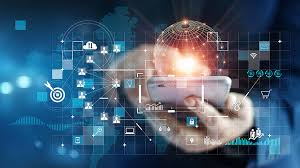Technology encompasses a broad range of tools, systems, and processes that are developed to solve problems, improve efficiency, or enhance human capabilities. Key areas of technology include:
Technology encompasses a vast array of tools, systems, and processes developed to solve problems, improve efficiency, and enhance human capabilities. It influences virtually every aspect of our lives, from the way we communicate and learn to how we work and govern. In this article, we will explore some of the key areas of technology—each playing a vital role in shaping our modern world.
1. Information Technology (IT)
Information Technology involves the use of computers, networks, and software to manage, store, and process information. Its applications range from business automation to online communication, and its impact can be seen in:
- Data Management: Advanced databases and cloud storage solutions enable organizations to handle vast amounts of data securely and efficiently.
- Software Development: Custom applications and software solutions are built to meet specific needs, transforming how businesses operate.
- Cybersecurity: With the rise of digital threats, IT includes robust security measures to protect sensitive information and systems.
2. Communication Technology
Communication technology facilitates the exchange of information and ideas, transforming how individuals, businesses, and societies interact. Key developments include:
- The Internet: A global network that connects billions, allowing for instant communication, information sharing, and collaboration.
- Mobile Technology: Smartphones and tablets have made communication accessible anywhere and anytime, driving social connectivity and business efficiency.
- Social Media: Platforms such as Facebook, Twitter, and LinkedIn have revolutionized how people engage and form communities, impacting everything from social movements to marketing strategies.
3. Artificial Intelligence (AI)
Artificial Intelligence refers to systems that can perform tasks that typically require human intelligence, including learning, reasoning, and problem-solving. AI’s influence is pervasive in sectors such as:
- Healthcare: AI systems assist in diagnosing diseases, personalizing treatment plans, and managing patient data effectively.
- Finance: Machine learning algorithms analyze market trends, assess risks, and automate trading processes.
- Manufacturing: Robotics and AI optimize production lines, improving efficiency and reducing human error.
4. Biotechnology
Biotechnology combines biology and technology to develop products and processes that improve healthcare and agriculture. Key advancements include:
- Genetic Engineering: Techniques like CRISPR allow for precise modifications in DNA, leading to advancements in medicine and crop production.
- Pharmaceuticals: Biotech plays a crucial role in developing vaccines and treatments for various diseases, exemplified by the rapid development of COVID-19 vaccines.
5. Renewable Energy Technology
As the world increasingly confronts climate change, renewable energy technologies provide sustainable solutions for energy generation. Key areas include:
- Solar Power: Solar panels convert sunlight into electricity, offering a clean and abundant energy source.
- Wind Energy: Turbines harness wind power, contributing significantly to reducing reliance on fossil fuels.
- Energy Storage: Innovations in battery technology enhance the capability to store and utilize renewable energy more effectively.
6. Manufacturing Technology
Advancements in manufacturing technology have led to the emergence of smart factories and automation. Key innovations include:
- 3D Printing: This technology enables the production of complex parts rapidly and cost-effectively, revolutionizing traditional manufacturing methods.
- Internet of Things (IoT): IoT connects machines and devices, allowing them to communicate and optimize industrial operations, reducing downtime and waste.
7. Transportation Technology
Transportation technology has evolved dramatically, reshaping how we move people and goods. Significant trends include:
- Electric Vehicles (EVs): With a focus on sustainability, EV technology is reducing carbon footprints and improving urban air quality.
- Autonomous Vehicles: Self-driving technology promises to enhance road safety and efficiency in transport systems.
- Hyperloop and High-Speed Rail: Innovations in public transport are aimed at reducing travel times and easing congestion in densely populated areas.
8. Education Technology (EdTech)
Education technology enhances the learning experience through digital tools and platforms. Key aspects include:
- Online Learning: E-learning platforms provide accessible education to students worldwide, breaking geographical barriers.
- Educational Software: Tools that facilitate personalized learning experiences, assessment, and classroom management.
- Virtual Reality (VR) and Augmented Reality (AR): Immersive technologies create interactive learning environments, enriching educational content.
Conclusion
Technology is a dynamic and ever-evolving field that continues to reshape our lives in profound ways. From enhancing communication and automating tasks to improving healthcare and addressing environmental challenges, its multifaceted nature allows for innovative solutions to emerge continuously. As we navigate this technological landscape, it remains crucial to harness these advancements for the greater good, ensuring that they serve to uplift and empower communities around the globe.




إرسال التعليق